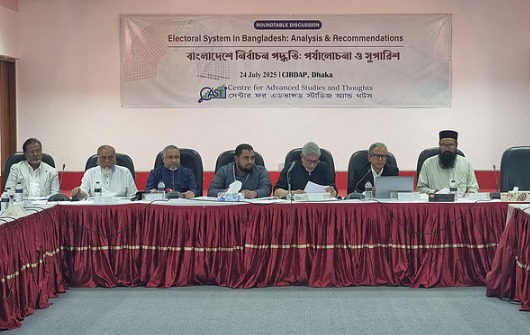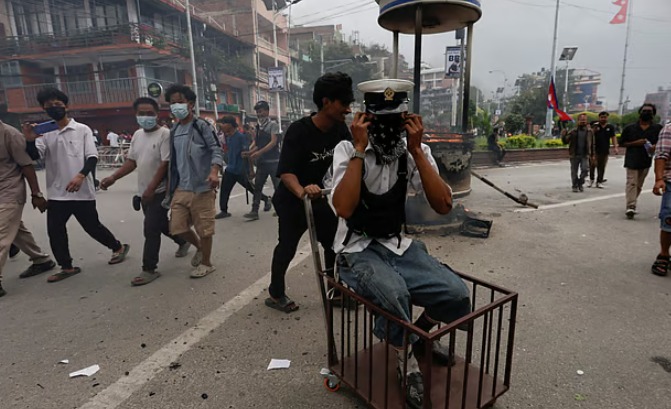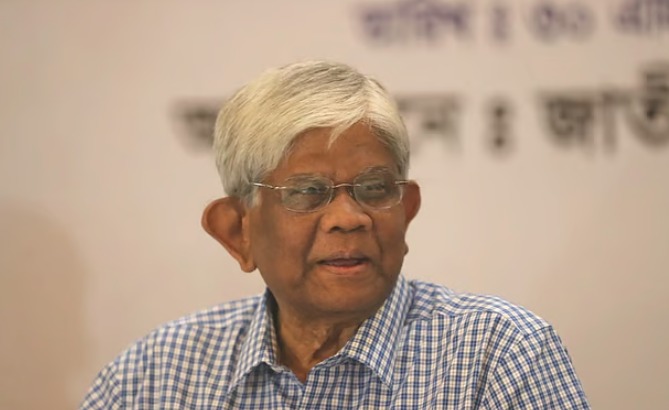Desk Report,
If we go with the PR method, all parties and opinions will be represented.
By changing the country’s traditional electoral system to the proportional representation system (PR), all parties and views will be represented. The candidates’ waste of money in election campaigns will also be prevented. The fascist structure will be abolished.
If we go with the PR method, all parties and opinions will be represented.
This was stated by the speakers at a roundtable meeting titled ‘Election System in Bangladesh: Review and Recommendations’ at the CIRDAP auditorium in the capital on Thursday. The roundtable meeting was organized by the ‘Center for Advanced Studies and Thoughts’.
The keynote address was presented by AKM Waresul Karim, Dean of the SBE Faculty of North South University. The event was moderated by Mohammad Abdur Rab, Vice Chancellor of Manarat International University. In the keynote address, Waresul Karim presented a research paper showing that FPTP (the one who gets the most votes among multiple candidates, wins) is not effective in preventing fascism. In this regard, he gave the example of the rise of the BJP in India and the Awami League government in Bangladesh. However, he said that instead of keeping the PR system in the entire electoral system, he would organize elections in half of the seats of the parliament using the PR system and in the remaining half using the FPTP system.
Abdul Latif Masum, a former professor at Patuakhali University of Science and Technology, said that we have to get out of the traditional electoral system. Although there has been a nationwide consensus on this matter, there are still differences of opinion on what kind of electoral system should be. A major party opposing PR has not been able to present any strong arguments in support of their opposition. Therefore, even if FTP can be accepted in the lower house as a compromise in the upcoming elections, the PR system must be introduced in the upper house.
Jamaat-e-Islami Naib-e-Ameer Syed Abdullah Mohammad Taher said, “Since nothing good has come out of the FPTP electoral system that has been in place for so long, we should now try out a new electoral system. That is why the PR system is necessary for us for the time being. In this system, there is a value (evaluation) of the votes of all voters. We want elections through the PR system so that fascism cannot return in any way.’
Professor Ashraf Ali, a member of the Presidium of the Islamic Movement of Bangladesh, said, ‘We had included the PR system in the election manifesto of the Islamic Movement in 2008. Pir Saheb Charmonai gave a very important speech on this. It is sad but true, we did not get the support of a single intellectual that day.’
Muneem Mobashvir, a student representative in the Anti-Corruption Commission (ACC) Reform Commission, said, ‘A group has put elections and reforms in a face-to-face position. By reform, we mean reform of the entire system of a state, and one option for that is elections.’ He said, ‘We, the general students, want reforms as well as elections. It would be better if the method for this is PR. Even if the entire system cannot be PR, the election process should be conducted in the current system by keeping PR in the upper house.’
The meeting was also addressed by Jamaat-e-Islami Executive Council member Saiful Alam Khan, researcher Shah Abdul Halim, former senior secretary Shariful Alam, Brigadier General (retd) Hasan Nasir, Colonel (retd) Ashraf Al Deen, Lt. Colonel (retd) AKM Maqsudul Haque, Dhaka University Professor Zubair Muhammad Ehsanul Haque, Chittagong University Professor Kazi Barkat Ali, Shahjalal University Professor Shamima Tasneem, City University Professor Zulfikar Hasan, Western Norway University Professor Abdul Quddus, lawyer Shishir Monir, and others.



